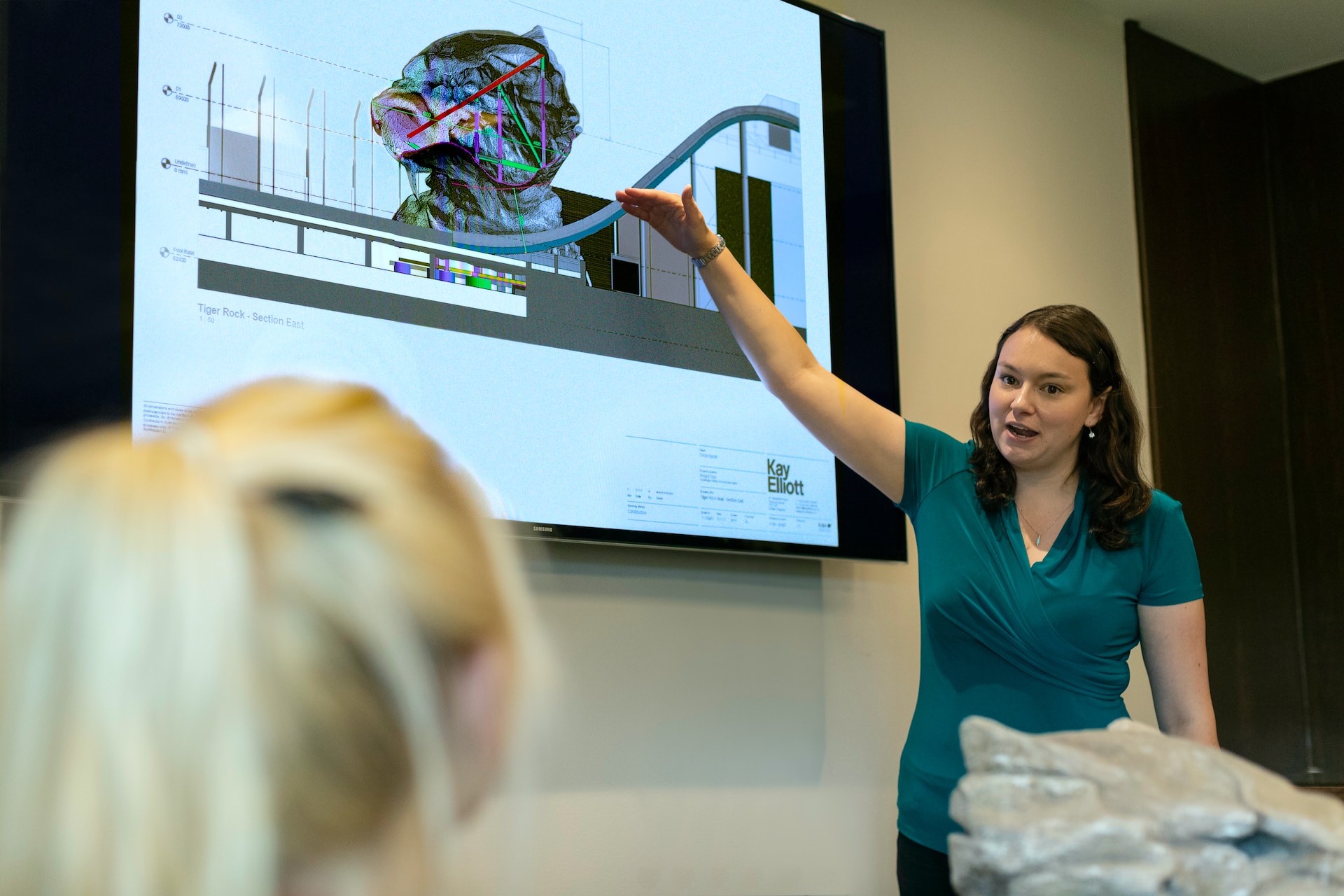The Vital Soft Engineering Skills Your Next Recruit Needs
22 Aug, 20239 minutes
The engineering industry is a dynamic and impactful sector crucial in designing and creating the systems and infrastructure needed to support global communities and economies. From elevating health care to battling climate change, engineers are at the forefront of innovation, dedicated to building a brighter future for us all. Therefore, it needs individuals with outstanding engineering skills to continue this vital work and drive its future success.
To be a successful engineer, candidates must rely on much more than just their technical skills, no matter how experienced and qualified they are. Soft skills enable engineers to understand and navigate their projects' social, environmental, ethical, and economic aspects. This is highlighted by a study by Havard University, Stanford Research Centre, and the Carnegie Foundation that found technical skills only account for 15% of success in any job role. Interpersonal and soft skills account for the rest.
In this guide, we will discover the types of soft engineering skills that, as a business, you should be looking for when carrying out your engineering recruitment process to ensure you only hire the highest-quality engineers.
What are the top five soft engineering skills?
As we explored in our Top Five Engineering Jobs in 2023 guide, the need for talented individuals with high levels of technical engineering skills are vital to the progression of our societies and the critical fight against global issues such as climate change.
Whilst we know what types of engineering roles businesses are crying out for, we haven’t truly explored the soft engineering skills that make an effective and innovative engineer. Here are our top five soft skills vital for any engineer.
1. Verbal and Non-Verbal Communication
Strong communication skills are crucial for any engineer, as they spend a significant portion of their working day with others, including team members, stakeholders, and clients. Outstanding communication is vital as it helps them to portray their ideas, collaborate with team members, and guarantee the successful completion of a project. Here are the key reasons for possessing high levels of communication.
Interaction with Stakeholders and Clients
Engineers often have to interact with customers and stakeholders in their day-to-day roles to identify and understand the project's requirements and desired outcomes. Throughout the process, they need to explain technical concepts and provide regular updates on project progress and issues that occur along the way. Possessing concise and clear communication skills helps build trust and respect, which is vital to successfully completing a project.
Presentations
Engineers will often have to present concepts, designs, and solutions to various non-technical and technical audiences. Using communication skills enables them to portray often complex information clearly and understandably. This is crucial in securing support, funding, and approval for ongoing and future projects.
Health and Safety
In industries where safety is of significant importance, such as mining, manufacturing, and civil engineering, engineers must be able to clearly communicate hazard warnings, safety protocols, and procedures to help protect the workforce and local community from potential risks and dangers.
Technical Documentation
A vital engineering skill is being able to provide clear and thorough documentation. Engineers need to produce detailed designs, reports, and specifications that are clear and easy to understand by those with technical and non-technical knowledge. Strong written communication ensures that crucial project details are recorded and organised, enabling the project to be completed to the highest standard.
2. Negotiation
An essential addition to our guide to engineering skills is negotiation. Negotiation is the key to effective communication, resource allocation, and problem-solving. It enables engineers to secure resources, navigate diverse perspectives, and drive projects forward. In essence, negotiation skills are the force that turns technical expertise into real-world impact. Whether designing structures or solving complex challenges, strong negotiation skills are vital in any engineer's toolkit and one hiring managers should be looking for in candidates.
Here are examples of key situations where engineers have to use their negotiation skills:
- Project Planning - At the beginning of a project, engineers often have to negotiate with stakeholders and clients to define and understand the aims and deliverables of the project. These negotiations can involve setting expectations, clarifying requirements, and aligning project targets to ensure a common understanding.
- Supplier and Vendor Relationships - Engineers negotiate with suppliers and vendors to source materials, components, or services vital for project implementation. Negotiations may include costs, quality standards, and delivery timeframes.
- Conflict Resolution - Engineers may encounter conflicts or disagreements with team members, clients, and stakeholders during projects. Strong negotiation skills support engineers in navigating these conflicts, finding common ground, and reaching resolutions that preserve relationships and don't negatively impact the project.
- Regulations Compliance - The ability to navigate regulatory guidelines often requires negotiations with regulatory bodies to ensure that projects meet legal and safety standards while driving innovative solutions compliant with regulations.
3. Strategic Planning
Due to the complexity of engineering projects, they require careful planning and execution. From developing cutting-edge technologies and designing new structures, engineers work on various projects that impact society and our way of life. However, due to their intricacy, engineering projects without robust planning can quickly derail. This is where strategic planning comes in, and here are the key reasons why it’s so crucial.
Fostering Consensus Among Stakeholders
Efficient strategic planning is pivotal in establishing harmonious alignment among all stakeholders, steering them towards a shared objective. By including all stakeholders in the planning phase, engineers guarantee widespread awareness of project goals and the contributions required from each party to attain them. This approach facilitates the cultivation of collaboration, effective communication, and cohesive teamwork, all of which are vital components for the success of a project.
Organisation and Prioritising of Tasks and Resource Allocation
Strategic planning empowers engineers to streamline task prioritisation and resource distribution with precision. This guarantees the project's streamlined and cost-effective completion. By establishing clear priorities, engineers can channel their energies toward the pivotal aspects of the project, minimising the wasting of time and resources on peripheral tasks.
Securing the Success of a Project
By meticulously developing a strategic plan, engineers enhance project success prospects and realise desired results. Strategic planning provides a well-defined pathway to achieving objectives and maintains project trajectory, guaranteeing timely, budget-conscious, and quality-aligned completion.
4. Creativity and Innovation
Creativity and innovation are next to our list of key soft engineering skills. The National Academy of Engineering describes the importance of this soft skill by stating:
‘Creativity is an indispensable quality for engineering, and given the growing scope of the challenges ahead and the complexity and diversity of the technologies of the 21st century, creativity will grown in importance’.
In order to address complex challenges, problem-solve, and create powerful and unique concepts, engineers must embrace creativity and innovation. According to the Institution of Engineering and Technology (IET), creativity is one of the most vital competencies for engineers to possess.
An effective innovation process allows engineers to execute new ideas into existing ways of working, supporting them in overcoming project limitations and making it successful. This process is usually divided into people, processes, and product.
People
In engineering, ‘people’ covers everyone involved in the project, from customers to team members to designers. Such a range of people can offer a variety of opinions, and this diverse set of views can potentially elevate the creative output of the process.
To drive creativity through people, engineering managers must encourage honest and open communication with all stakeholders involved in a project to facilitate new and innovative ways of working. This is achieved by encouraging the sharing of ideas and effective listening, implementing the concepts discussed, showcasing their impact on the project, and crediting them to the relevant team members.
Processes
The ‘process’ behind engineering is a series of working methods and steps taken to deliver a project successfully. These stages include:
- Research
- Design
- Concept
- Testing
- Production
These processes will influence the outcome of a project, and driving creativity at each stage contributes to the innovative evolution of the final result.
Engineers should always strive for new and cutting-edge ways of working, drawing from a diverse array of old and new sources of inspiration that can be subsequently integrated into the design stage. Additionally, they should actively explore new software tools to infuse variety into concepts they formulate, thereby rejuvenating the types of technology they employ. Such actions will enhance their testing methodologies and propel innovation forward.
Product
While innovation in 'process' modifies how an engineering project is executed, 'product' innovation, on the contrary, revolves around enhancing the attributes of an engineered product or service.
Cultivating creativity within this area is essential for engineers to create inventive designs. This necessitates employing critical thinking and resourcefulness to explore how technical specifications, elements, software, user-friendliness, and ergonomic aspects can be refined to elevate the product's usability.
Furthermore, it is always vital that the engineering of products evolve around constantly shifting environmental regulations. Engineering tackles this challenge by driving the increased use of sustainable materials or devising efficient methods to reduce wastage and emissions.
5. Emotional Intelligence
Emotional intelligence is vital for several reasons in engineering. First of all, one of the main aims of an engineer is to design and create things that are to be used by other people that will benefit their lives. Understanding the customer's needs and empathising with end users is crucial to creating successful and user-friendly products and services. Secondly, as teamwork is essential in driving innovation and collaboration, engineers with elevated people skills will thrive in effectively communicating and delivering their responsibilities and tasks.
Here are the four skills needed to build emotional intelligence:
Self-awareness
Self-awareness entails identifying and comprehending one's thoughts, emotions, and sentiments, all of which influence interactions with others. It encompasses an awareness of strengths and areas for improvement and understanding how you might react in specific situations or towards particular individuals.
Armed with this insight, individuals can attain objectives, inspire others, and foster a fair, all-encompassing, and sustainable working environment.
Self-management
This refers to the ability to manage and control your thoughts, behaviours, impulses, and emotions in various scenarios. It encompasses the capability to manage your reactions, adapt to evolving circumstances, and sustain a constructive and balanced approach to opportunities and challenges.
Engineers with strong self-management skills effectively manage stress and make well-informed decisions rather than succumbing to impulsive reactions. This skill empowers them to navigate social and business interactions more skillfully whilst maintaining an adaptable and composed demeanour.
Social Awareness
Social awareness is a vital skill, as one of the main aims of engineering is to benefit society and improve people’s lives. Therefore, engineers with these skills can develop a heightened awareness of the potential consequences (even if unintentional), ensuring that their work positively impacts local communities and aligns with societal values and expectations.
Furthermore, it enables engineers to consider different groups and communities' diverse needs, experiences, and perspectives. This leads to more equitable and inclusive concepts and creations that cater to a broader range of users and stakeholders.
Relationship management
This skill is vital for engineers as it allows them to effectively manage team, customer, and stakeholder relationships, clearly communicate with persuasion, and build rapport and trust. Here are three key reasons relationship management is important regarding emotional intelligence.
- It allows engineers to understand the needs and emotions of clients, colleagues, and stakeholders, enabling more empathetic and effective interactions.
- Encountering conflict or disagreements is common for engineers during engineering projects. Relationship management skills enable them to deal positively with these situations by driving open communication, active listening, and collaborative problem-solving to research solutions that meet the needs of everyone involved.
- It helps build strong team dynamics by empowering respect, trust, and a support culture where people can openly and confidently share ideas and opinions.
Final Thoughts
The engineering industry is constantly evolving and demanding new skills from its professionals. In addition to technical skills, engineers must have strong, soft skills to succeed. These soft skills include communication, negotiation, strategic planning, creativity, and emotional intelligence.
When hiring engineers, businesses should look for candidates with both the technical and soft skills necessary to succeed. By hiring engineers with excellent soft skills, companies can ensure that their engineering projects are completed on time and within budget, the resulting products and services are of the highest quality, and relationships between teams, stakeholders, and customers are respectful and effective.
Need the Support of an Expert Engineering Recruitment Agency?
Ready to elevate your engineering team to new heights? As a specialist engineering recruitment agency, we are ready to be your strategic partner in sourcing exceptional engineering talent. We help you unlock the full potential of your engineering projects by building a diverse team of engineers who bring technical prowess and essential soft skills to the table. We ensure will find candidates who are the right fit for your company's culture, values, and objectives.
Contact us today for more information about our bespoke recruitment services, and together, let's engineer a brighter future for your business.



